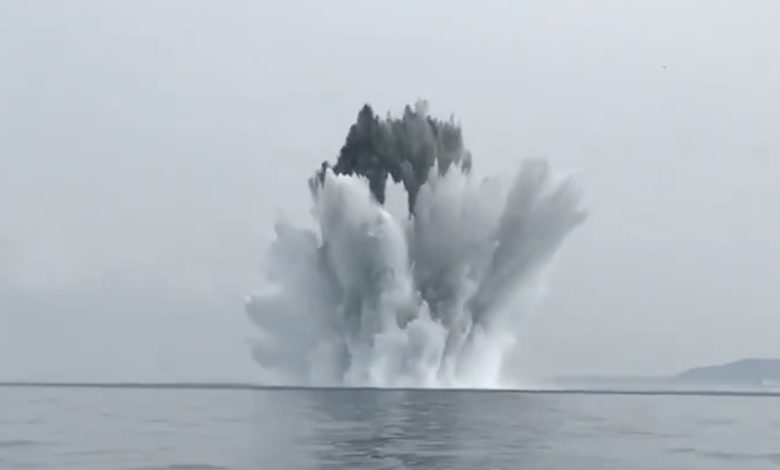NATO warns on the risk of mines in the Black Sea

The North Atlantic Treaty Organization (NATO) has warned shipping of the risk of mines in the Black Sea as the international maritime community comes to terms with the first confirmed seafarer death from the eight-day-old conflict between Russia and Ukraine.
A Bangladeshi third engineer died last night after a missile struck the bulk carrier he was working on anchored at Olvia port on the Black Sea. Thus far there have been four reported ship strikes during the Russian invasion. NATO is advising merchant shipping to be aware of growing risks.
“A large number of navigation warnings have been issued, covering a number of warning areas, including mine danger areas. Shipping is encouraged to stay well informed about these and keep well clear of the areas as well as warships and military crafts,” NATO stated in an update.
All Ukrainian ports have been shut for the last eight days, while Russia has blocked access to the Sea of Azov.
According to the latest data from shipping platform Sea/ there are still 105 merchant ships in Ukrainian waters this morning, down from 157 at the the start of the war.
“The risk of GPS interference issues, AIS spoofing, other electronic interference and cyber attacks in the area are still considered very high. Harassment and diversion of shipping in the area is also considered highly likely,” NATO added. Splash has already reported on two merchant ships being detained by Russian naval forces.
On the ground at Ukraine’s main ports, as reported by Splash yesterday, the city of Kherson has become the first big urban area to have fallen to Russian forces.
Mariupol, meanwhile, is isolated by Russian military and has endured heavy bombardment. Electricity, heating, mobile and internet communications have been cut off but Ukrainians are still in charge of the city.
American officials are reporting several Russian warships have left Crimea and are heading to Odessa, Ukraine’s top port. An amphibious assault on Ukraine’s third largest city is likely in the coming hours.
Turning to the wider international shipping scene as the conflict sends ripples across the maritime food chain, insurers, ports, and shipping lines are increasingly turning their backs on Russian business in the wake of increased sanctions and the inherent dangers involved in trading with Moscow today.
The West of England P&I Club has withdrawn cover for two containerships operated by Russia’s FESCO Transportation Group after the vessels were listed by the US Treasury as part of broader sanctions.
These are the first Russian owned vessels to be hit by US sanctions on their insurance cover.
A ban for Russian and Russia-linked ships to enter Baltic seaports is being coordinated with littoral states and the European Union, Lithuanian transport minister Marius Skuodis has said.
Across Europe, other port bans are coming into place. Gibraltar, a major Mediterranean bunkering hub, has banned Russian vessels. The ban applies to vessels which are owned, controlled, flagged, chartered, operated or carrying any cargo by any person connected with Russia.
The European Union is being pressed to mirror its airspace ban for shipping, with the UK already putting a ban in place as well as Canada.
In Germany, Hamburger Hafen und Logistik (HHLA) and Eurogate, the nation’s top two terminal operators, have stopped accepting cargo destined for Russia and originated from Russia. This also includes cargoes in transhipment to and from Russia. Rotterdam, Europe’s largest port, has announced similar measures.
As a consequence, HMM, South Korea’s flagship carrier, has issued a customer advisory. HMM’s services to Russia are all transhipped in Rotterdam and Hamburg and hence they can no longer serve St Petersburg.
Furthermore, as the sanctions include both loading and unloading of Russian cargo this has prompted HMM to advise that inbound Russian cargo already on the vessels will remain onboard and be returned back to origin. Cargo already in the ports of Hamburg and Rotterdam will remain there for the time being.
Commodity prices have been leaping across the board today again with brent crude oil reaching $119 a barrel.
For all the news on how the invasion of Ukraine is affecting global shipping, check out Splash’s dedicated coverage here.
